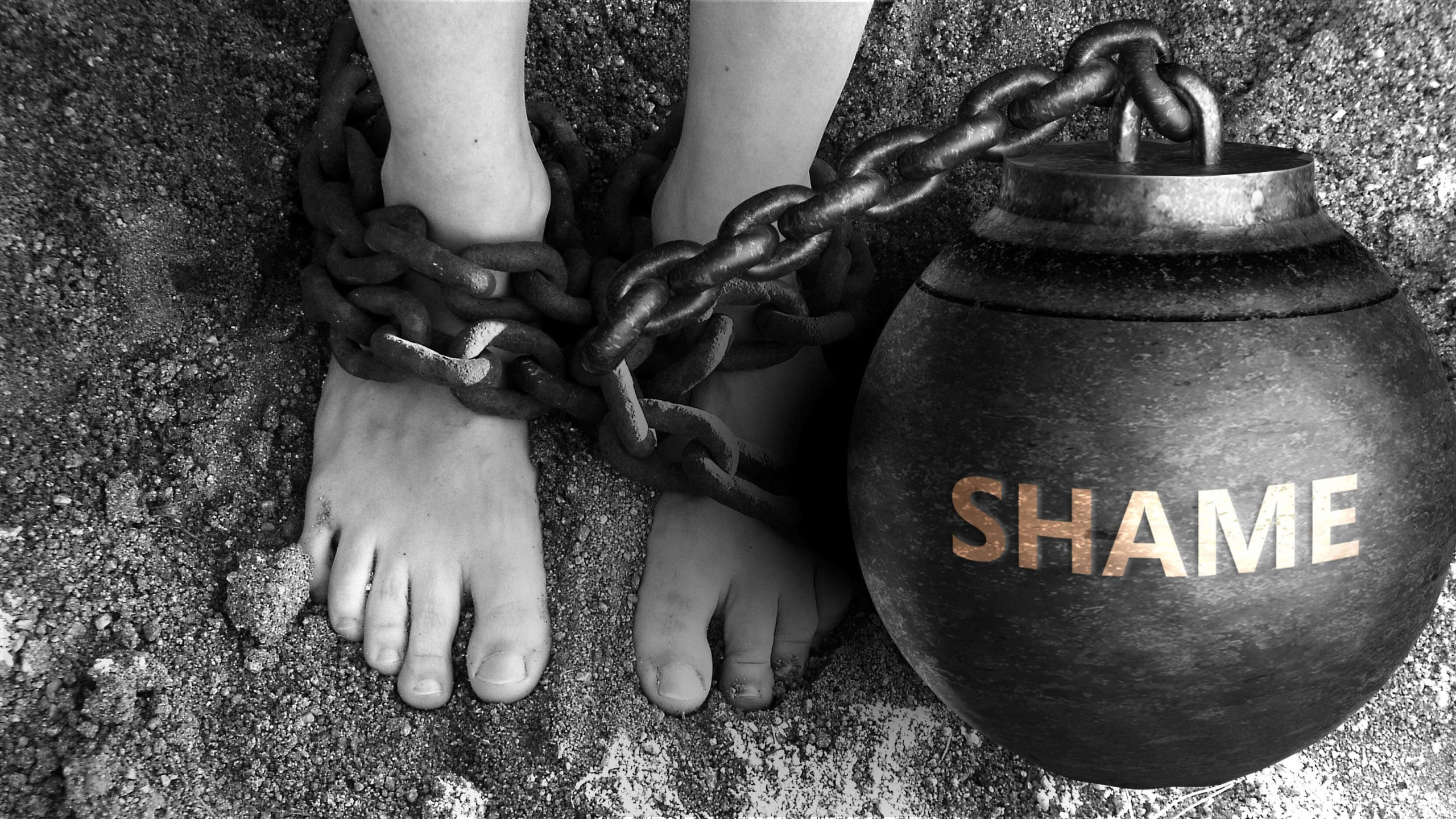Feelings of shame typically occur when someone evaluates or critiques themselves for things they have no control over. It can lead to a sense of self-loathing and worthlessness that may become debilitating. When it reaches that level, and the person’s sense of self begins to be impacted, it becomes toxic.
If left unresolved, toxic shame leads to many other negative feelings, like anger and self-disgust. The person may also engage in self-sabotaging behaviors, including substance abuse or self-harm. Not dealing with toxic shame can cause mental and physical damage, but it is possible to recover from the negative thinking and self-talk that comes from this type of shame.
Comparing Normal and Toxic Shame
Not all shame is the same. Most people experience regular shame during their life. Often, shame arises from a lack of adherence to societal or cultural norms. Because defying these norms is viewed as harming society, someone who engages in these actions — or sometimes simply thinks about them — may feel ashamed. These rejected behaviors are viewed as harmful to others.
Additionally, shame and guilt can be confused. Guilt is when someone makes a mistake and does something they know they shouldn’t. The person then feels guilt because that action may have caused harm to another, even if it was unintentional. Both guilt and shame may result in a behavior change because the individual is disappointed in what they have done or said, and they want not to repeat that behavior in the future.
Shame, however, centers more on a personal sense of self. Someone with toxic shame may:
- experience a negatively impacted sense of self
- feel intense and longer-lasting shame
- have ongoing feelings of inadequacy
- hear a constant negative inner dialogue
- think “I am a bad person” instead of “I did a bad thing”
- avoid things that may cause future shame
- find themselves triggered by thoughts, not just an external event
So, whereas guilt may be alleviated with an apology or some other act of contrition, shame is harder to resolve, even with an apology or some other form of amends.
What Causes Toxic Shame
Childhood abuse, neglect, and other traumatic experiences are often a starting point for someone to develop toxic shame. Parents play a significant role in a child’s sense of self, depending on how they teach and respond to acceptable and unacceptable behaviors.
For instance, if a child breaks something while roughhousing, an expression of disapproval or disappointment that focuses on the action would be a normal parental response to help teach the child about the consequences of their actions. A response that has the potential to cause toxic shame is a parent that says something like, “You’re so stupid for breaking that.” Words like that focus on aspects of the child’s self that make them feel painfully vulnerable, inadequate, or unworthy of love or positive attention.
Abusive, neglectful, or emotionally distant parenting may also result in a child developing feelings of toxic shame. These parental behaviors cause children to feel they don’t belong or don’t deserve love and affection. It is also possible for an adult to develop feelings of toxic shame if they internalize negative thoughts about their personality or intelligence.
Dangers of Toxic Shame
People who feel toxic shame often try to deal with their negative feelings and thoughts by engaging in substance abuse, eating disorders, and other forms of self-harm. They choose these unhealthy coping mechanisms because they do not know how to escape the pain they feel. Others may handle their toxic shame by placing unrealistic expectations on themselves to avoid actions that may result in them feeling ashamed again.
Two of the most common signs of toxic shame are withdrawal and anger. Other symptoms or characteristics of someone with toxic shame include:
- feeling worthless
- worrying about what others think about you
- being afraid to look stupid
- perfectionism in response to fearing failure
- constant negative self-talk
- anger in response to shame triggers
Overcoming Toxic Shame
It is possible to overcome feelings of toxic shame through self-compassion, self-awareness, mindfulness, and patience. First, the person should acknowledge their negative thoughts in a nonjudgmental way.
Next, the person can use practices like journaling and mindfulness to learn and recognize the triggers that cause them to feel toxic shame. Once these triggers are identified, the person can begin finding ways to cope with them.
The third step is for the person to learn to challenge their negative thinking and reframe their thoughts in a kinder, more compassionate way. There are many ways to learn to replace negative thinking. One way is via a cognitive behavioral therapy (CBT) technique. It guides a person to:
- acknowledge their thought (I’m feeling this way…)
- recognize their trigger (where did it come from?)
- challenge their view (is there evidence this is true?)
- reframe their thinking (use the evidence to construct a positive thought)
Finally, anyone dealing with toxic shame should practice some personal compassion. This involves learning to love themselves and to accept love and kindness from others. A sense of self-love takes time to develop. Engaging with a therapist can be a valuable part of dealing with toxic shame. A therapist can help reveal the roots of a person’s toxic shame and help heal the original trauma that led them to feel unworthy of love or compassion. A trained mental health professional will be able to share tools and strategies for handling negative thoughts and emotions.
A licensed mental health and substance abuse intensive outpatient program (IOP) in Scottsdale, Arizona, Rising Phoenix was created to offer a safe, welcoming, and nurturing environment where clients are not judged, but embraced, throughout their recovery process.

